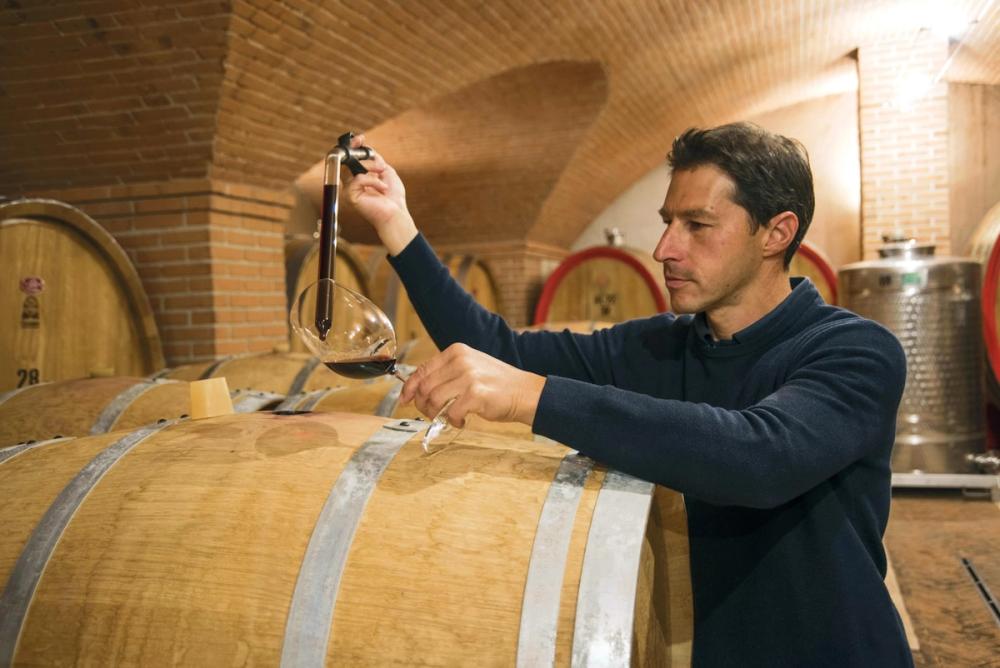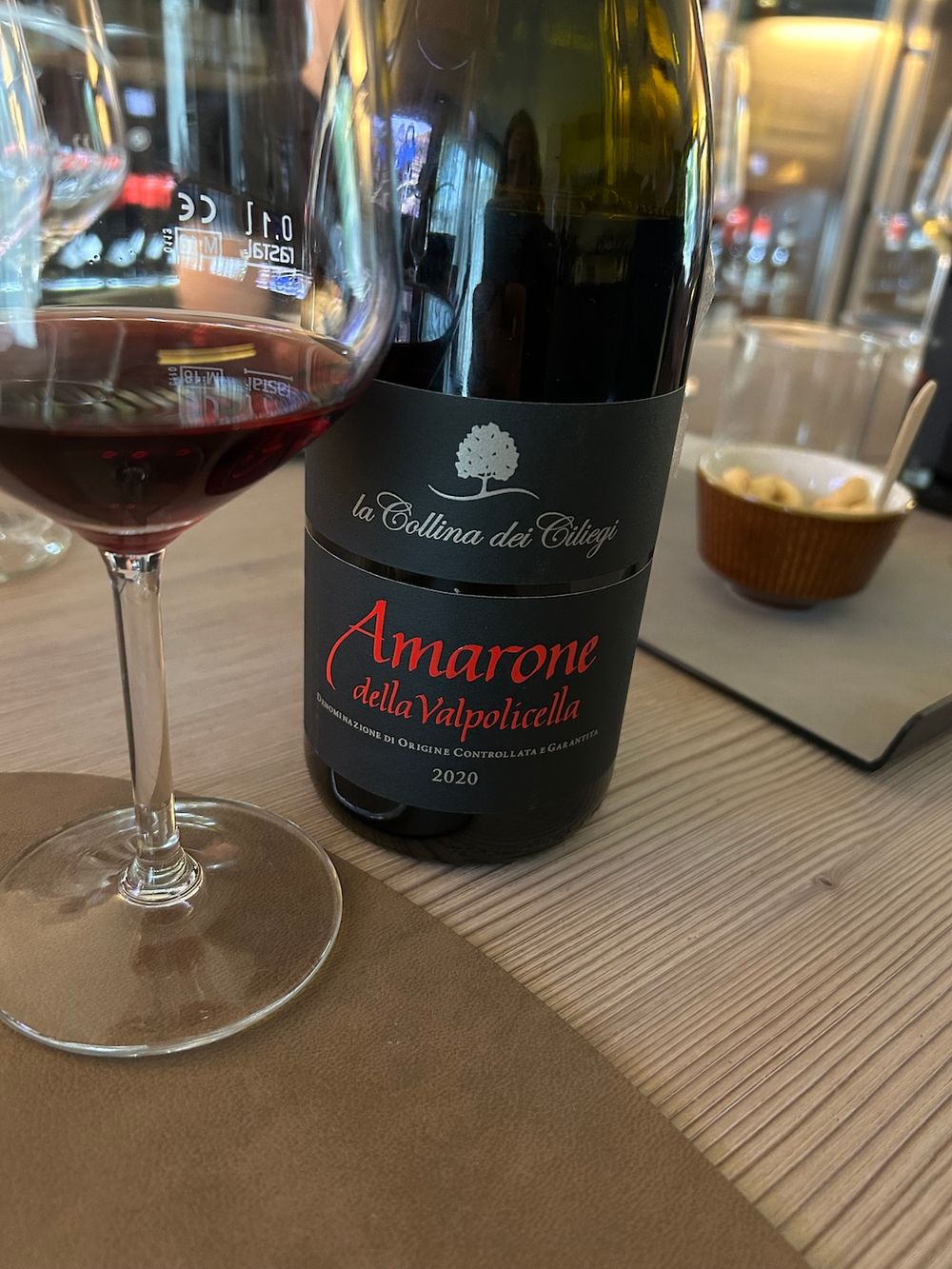Under the direction of Michael Saunders, Hallgarten & Novum Wines has been experiencing remarkable growth, bolstered by the formation of Coterie Holdings in 2023. Despite ongoing economic challenges such as the cost-of-living crisis, Hallgarten is committed to expanding its portfolio and maintaining its focus on quality. Saunders remains optimistic about easing economic pressures but is also preparing for the anticipated end of the wine duty easement in February, which may bring further complexities.
With Coterie Holdings providing a comprehensive structure – including importing, distribution, bonded warehousing, and wine trading – Hallgarten has achieved a 30% increase in staffing and a 20-30% expansion in its wine portfolio.

Sampling at Roccolo Grassi
This focus on premium wines was evident during my recent visit to Veneto, where we visited three wineries in Hallgarten’s portfolio: La Collina dei Ciliegi in Valpantena, Ca' Rugate in Montecchia di Crosara and Roccolo Grassi on the eastern side of the Lessini Hills. It was pouring down with rain for the three days non-stop we were there – which was near the end of harvest. The whole season has been like this, according to the growers, extreme and difficult weather conditions.
Amarone and the shift towards lower alcohol wines
In the global wine market, lower-alcohol wines are gaining popularity, particularly in the UK and US, where consumers are favouring wines with 12-13% ABV. This trend poses challenges for Amarone, a traditionally high-alcohol style. A 2022 report from Wine Intelligence highlights this shift in consumer preference. However, both Roccolo Grassi and Ca' Rugate are adapting to this trend by focusing on elegance and balance, producing Amarones that retain freshness and acidity through high-altitude vineyards and precise appassimento techniques.

“The market for Amarone remains traditional but, as the wines become lighter, we hope to attract a younger demographic.” : Steve Daniel
Steve Daniel, head of buying at Hallgarten & Novum Wines, provided his insights into the evolving market for Amarone.
“The modern, fresher, more refined styles of Amarone are my preference and reflect the direction of the UK wine consumer. There’s a shift away from the big, high-ABV Amarones, driven by changing tastes and duty rates on wines above 15% ABV. This shift will likely impact lower-priced, high-alcohol Amarones, leaving space for premium, fresher styles where Amarone truly belongs.”
Daniel’s perspective resonated with what I observed at both wineries. Roccolo Grassi’s Amarone embodies a restrained power, with winemaker Marco Sartori describing its approach to appassimento as a careful balance.
“We start by selecting only the best grapes, drying them in ventilated lofts to maintain acidity while concentrating flavours,” he said.
Similarly, Francesco Ganci of Ca' Rugate emphasised the soils.
“The volcanic soils here are key to the minerality and freshness of our wines. It gives them that unique edge, even in our Amarones.”

Who drinks it?
“The market for Amarone remains traditional but, as the wines become lighter, we hope to attract a younger demographic,” says Daniel. This potential shift could broaden Amarone's appeal beyond its established audience, opening the door to a new generation of wine drinkers interested in balanced, food-friendly wines.
What’s its future in the UK?
Daniel believes Amarone will maintain its reputation as a premium, gastronomic wine, especially as the market increasingly values refined styles.
“Amarone will always have a market as a desirable wine, but it won’t be mass-market. Price increases could boost its appeal in premium hospitality, emphasising its strengths as a gastronomic wine. I think with the region as a whole, the future lies with refined elegant reds and well-made Ripasso at lower ABVs.”
In Veneto, Hallgarten & Novum Wines has curated a selection of wineries that reflect both tradition and innovation. La Collina dei Ciliegi, Ca' Rugate and Roccolo Grassi offer wines that showcase the diversity and potential of Soave and Valpolicella
Hallgarten & Novum is a commercial partner of The Buyer. To discover more about them click here.
































